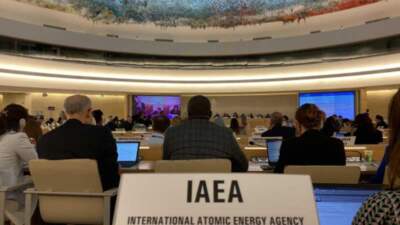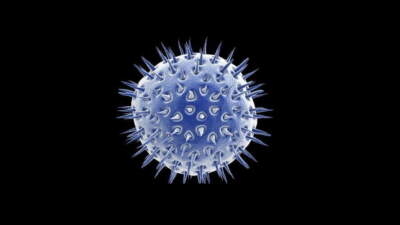Unwavering liberty and timeless wellness: these are the founding pillars that define America’s soul. Amidst the fervent festivity and resonant echoes of the Star-Spangled Banner that mark the Fourth of July, we find an opportune moment to delve into the less-charted territory of health observance.
Pandemic
IAEA Enhances Global Health through Nuclear Science: Key Takeaways from the 76th World Health Assembly
Geneva, Switzerland — The International Atomic Energy Agency (IAEA) is committed to aiding countries to bolster their cancer care capacities and optimize the benefits of nuclear science and technology across multiple health domains. This significant role was underscored at the 76th World Health Assembly (WHA) that took place in Geneva.
New Study Review Explores Homeopathy’s Potential in the Fight Against COVID-19
In a recent study review, Dr. Anil Singhal MD delves into the potential role of homeopathy in managing the complexities of COVID-19. The review, titled “Homeopathy’s Potential in the Fight Against COVID-19: A Study Review”, is published on EvidenceBasedHomeopathy.com.
Brown Fat: The Good Fat in Obesity Treatment
Obesity, a global health crisis affecting millions, has long been a challenging condition to treat. However, recent advancements in gene therapy offer a glimmer of hope. Gene therapy, a revolutionary technique that uses genes to treat or prevent diseases, is now being explored as a potential solution for obesity.
Unveiling Long COVID: The Unseen Global Health Crisis
The COVID-19 pandemic has left an indelible mark on global health, with its impact extending far beyond the acute phase of the disease. A recent Swiss study published in the British Medical Journal (BMJ) has shed light on the long-term effects of COVID-19 in unvaccinated individuals, revealing a worrying trend.
Unraveling the Hepatitis Mystery: Common Viruses and Post-Lockdown Vulnerability in Children
Last year, health experts worldwide were puzzled by reports of severe, unexplained hepatitis in previously healthy children. A recent study conducted by the University of California, San Francisco (UCSF) has shed light on this mysterious outbreak of acute severe hepatitis that affected children in the United States and 34 other countries in spring 2022.
Trust in Science During COVID-19: Increased Overall but More Polarized, with Trust Key to Vaccine Acceptance
A study by the Milner Centre for Evolution at the University of Bath, along with colleagues at Universities of Oxford and Aberdeen, found that trust in scientists has increased since the COVID-19 pandemic. However, attitudes have become more polarized, meaning people either trust or do not trust scientists.
Unlocking the Mystery: How Dexamethasone Battles Severe COVID-19 and the Path to Targeted Treatments
In the early days of the COVID-19 pandemic, doctors tried different medicines to find what could help save lives from the virus. Researchers also worked hard to understand the body’s response to the virus and create helpful drugs and vaccines. They found that a common steroid called dexamethasone could save lives in very sick COVID-19 patients, but they didn’t know why.
Bridging the Digital Divide: The Pursuit of Equitable Health Care Access in Rural America
In many rural areas of America, limited access to health care is coupled with scarce broadband internet availability, making it challenging for residents to benefit from the growing trend of online health services.
Autism Prevalence on the Rise: Exploring Trends, Disparities, and Pandemic Impact on Detection
The occurrence of autism spectrum disorder in American kids increased between 2018 and 2020, sustaining a long-term pattern, as per a study by the Centers for Disease Control and Prevention released on Thursday. In 2020, it was estimated that one in 36 8-year-olds had autism, a rise from one in 44 in 2018. The prevalence was about 4 percent in boys and 1 percent in girls.










